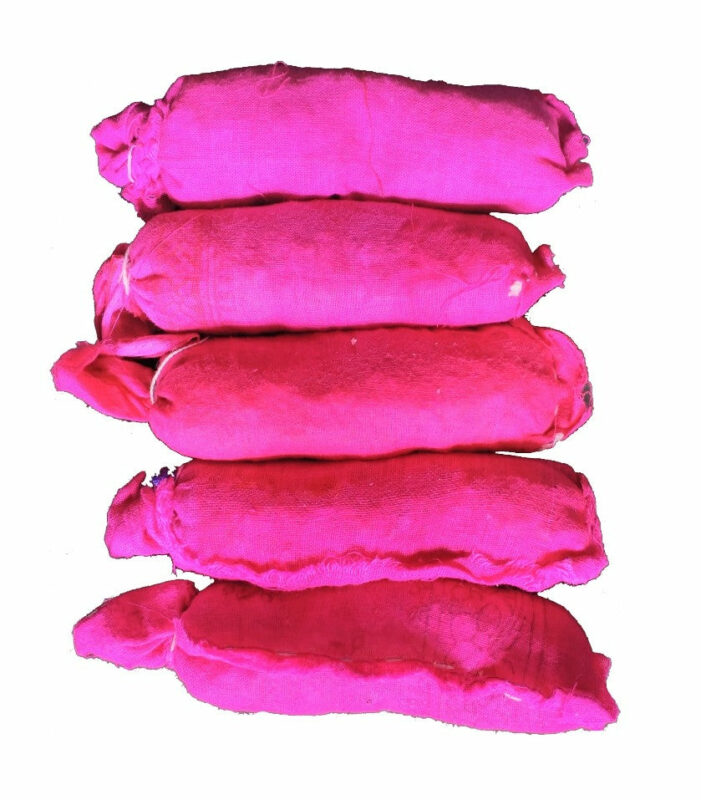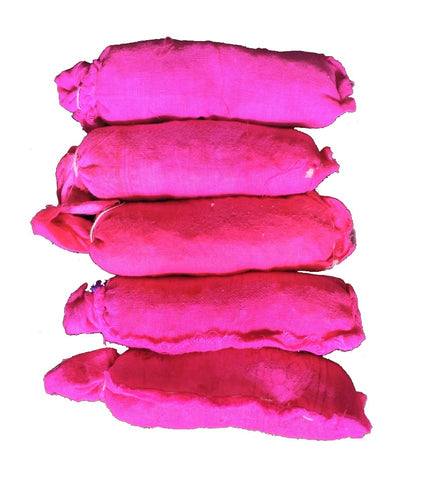Articles
Nirmalya Mahaprasadam :
Mahaprasada and Meaning
‘Mahaprasad’ is of two types. One is Sankudi mahaprasad and the other is Sukhila mahaprasad. Both the types are available for sale in Ananda Bazaar of the Grand Temple.
- Sankudi mahaprasad includes items like rice, ghee rice, mixed rice, cumin seed and asaphoetida-ginger rice mixed with salt, and dishes like sweet dal, plain dal mixed with vegetables, mixed curries of different types, Saaga Bhaja’, Khatta, porridge etc. All these are offered to the Lord in ritualistic ways. It is said that every day 56 types of Prasad are offered to the Lord during the time of worship and all of these are prepared in the kitchens of the temple and sold to the devotees in Ananda Bazaar by the Suaras who are the makers of the Prasad.
- Sukhila mahaprasad consists of dry sweetmeats.
Besides Sankudi and Sukhila mahaprasad another type of dry mahaprasad is Nirmalya. This is also known as Kaibalya. In spiritual recognition Nirmalya is equally important as Mahaprasad. There is a belief among Hindus that if Nirmalya is given to a person on his death bed, he is certain to find a place for himself in the heaven after his death following atonement of all his sins. Nirmalya is commonly understood as dry-rice i.e. rice dried up in hot sun in Kaibalya Baikuntha. As laid down in the Skanda Purana things like flowers, sandal paste, garlands, etc. which are treated with reverence on the Lord including the other divine deities seated on Ratnasinmhasan (throne) in the temple are also known as Nirmalya after they are taken out from the deities. It is thus established that any of the divine accompaniments or components that is taken out of the Lord and his divine associates is known as Nirmalya.
Four hallowed shrines located at cardinal points of the Indian sub-continent i.e. Puri, Rameswar, Dwarika and Badrinath are believed to have been liked by Lord Vishnu intimately. It is said and believed that He takes His bath at Rameswaram, meditates at Badrinath, dines at Puri and retires at Dwarika. Hence, the temple food “Mahaprasad” (not simply prasad) at Puri is held to be of supreme importance.
According to ” Skanda Purana” Lord Jagannath redeems the devotees by permitting them to partake His Mahaprasad, to have His darshan and to worship Him by observing rituals and by offering of gifts. Mahaprasad is treated here as ‘Anna Brahma’. The temple kitchen has got the capacity to cook for a lakh of devotees on a day. Mahaprasad is cooked only in earthen pots and using fire wood as fuel. The steam-cooked food is offered to Lord Jagannath first and then to Goddess Vimala after which it becomes Mahaprasad. This Mahaprasad is freely partaken by people of all castes and creeds without any discrimination. The items offered include cooked rice, dal, vegetable curry, sweet-dishes, cakes etc. Dry confectioneries are prepared of sugar, gur, wheat flour, ghee, milk and cheese ( Chenna) etc.
Legend has it that when the steam cooked food is carried to the Lord in slings of earthen pots no essence can be smelled from the food but when the same is carried back to the sale point (Anand Bazar) after being offered to the Lord, a delicious smell spreads along in the breeze to the pleasant surprise of the devotees. Now the food is blessed.
Mahaprasad consolidates human bond, sanctifies, sacraments and grooms the departing soul for its journey upwards.
Mahaprasad are sold in Anand Bazar or the Pleasure Mart of the temple which is situated on the north east corner of the outer enclosure of the temple. It is the biggest open-air hotel in the world where every day thousands of devotees purchase and eat together forgetting their caste, creed and status.
Most of the residents in and around Puri depend upon this Mahaprasad to entertain their guests during social functions such as thread ceremony and weddings. In all auspicious occasions in Odia Hindu families, Mahaprasad is partaken first.
The tourists prefer to carry a particular type of dry Mahaprasad known as” Khaja” (made of maida, sugar and ghee) which stays fresh for days together.
Mahaprasad is ceased to be offered from the first day of the Ratha Yatra till the day the deities return to their bejeweled throne[1].
Dried rice Mahaprasad known as “Nirmalya” is also used by devotees and tourists for different sacred occasions.


